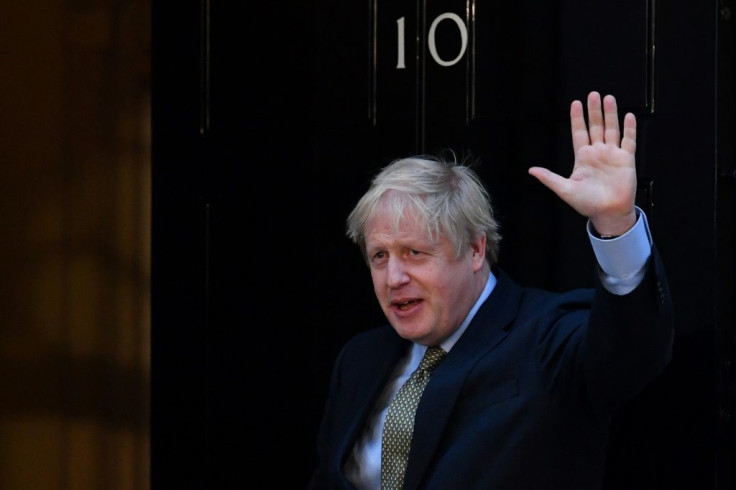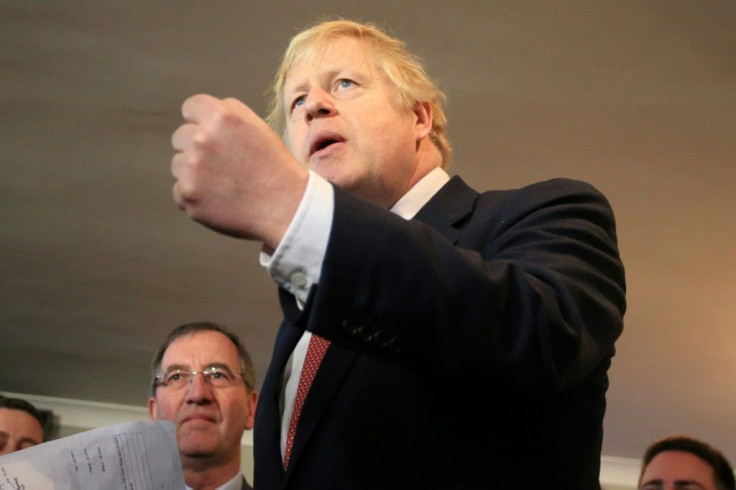No Deal Brexit Possible As Johnson Pledges Full EU Exit By 2020

KEY POINTS
- PM Boris Johnson is prepared to risk a hard Brexit to fulfill his promise to leave EU in 2020
- Johnson said his government won't make the request to extend the transition period
- Parliament will start voting on the Brexit law authorizing the UK’s departure from EU on Friday
British Prime Minister Boris Johnson on Tuesday dismissed speculation he plans to extend the post-Brexit transition period beyond Dec. 31, 2020, reigniting well-founded fears he will go for a hard Brexit come what may. This decision means leaving the European Union (EU) without a trade deal with the 27 nation bloc.
Johnson also said his government won't make the request to extend the transition period, which it must make by June 30, 2020. On Tuesday, a British government spokesman said the U.K. will leave the EU’s regulatory area, which consists of its single market for goods, services, labor and capital and its customs union, “in all circumstances” by the end of 2020, said the Wall Street Journal.
Last Friday, a ranking government official said the Dec. 31, 2020 deadline will be embedded into the EU withdrawal legislation to be presented before the British Parliament this week. On Dec. 20, Parliament will start voting on the Brexit law that will authorize the U.K.’s departure from the EU by the end of January.
Michael Gove, Chancellor of the Duchy of Lancaster and a Brexit stalwart, on Tuesday said bringing this legislation to Parliament before Christmas is “a clear signal of intent” the government intends to carry out its pledge to leave the EU.
The hardline taken by Johnson, fresh from a stunning and sweeping general election victory on December 12, fulfills his campaign promise to leave the EU at the end of 2020 no matter what circumstances are present at the time.
Analysts noted Johnson's decision means the failure to reach a free trade agreement (FTA) by June, which many consider impossible since FTAs take years to negotiate, will raise the threat of tariffs and other obstacles to U.K.-EU trade. There's also the daunting reality whether a comprehensive trade deal can be negotiated and ratified by 27 EU parliaments in only 11 months.
The EU has tacitly accepted the reality Johnson and his government are serious about leaving the post-Brexit transition by the end of 2020, with or without a new trade agreement. There has always been hope some kind of accord is possible, but Johnson's election and his statments about leaving the EU have all but dashed the idea some sort of mutually beneficial trade deal can be reached in time.
“I think given all the signals we are getting…we are well advised to take seriously that the U.K. does not intend to go for an extension of the transition and we need to be prepared for that,” said Sabine Weyand, the EU director-general for trade. “And that means that, in the negotiations, we have to look at those issues where failing to reach an agreement by the end of 2020 would lead to another cliff-edge situation.”
A hard Brexit involves a deal whereby the U.K. leaves not only the EU but the single market and the customs union, as well. The U.K., however, will be able to sign free trade deals with other countries.

© Copyright IBTimes 2024. All rights reserved.





















